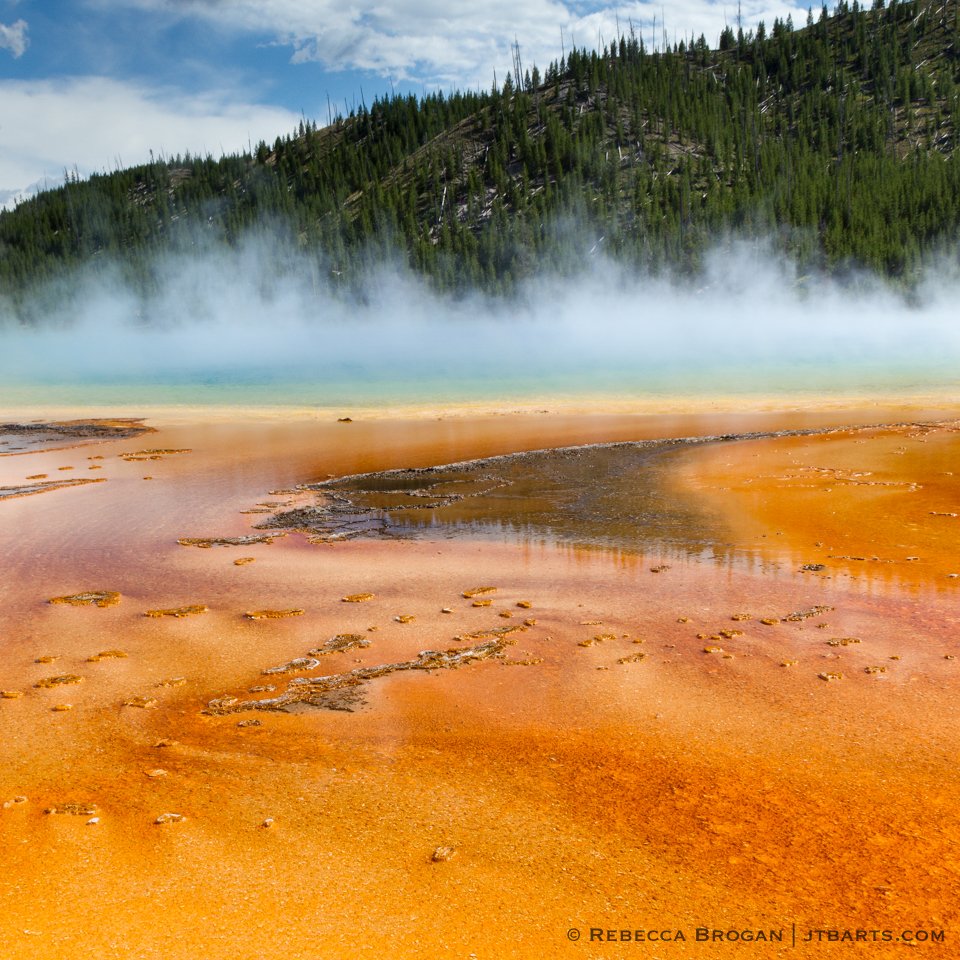LANDSCAPE PHOTOGRAPHY > YELLOWSTONE NATIONAL PARK > Grand Prismatic Spring (Yellowstone National Park)
Print Code: YNP4 | Print Sizes: S, M, L, Oversize | Contact for Prints
Grand Prismatic Spring is my favorite feature in Yellowstone National Park. The amazing patterns and especially the rainbow colors of the spring captivate my artistic eye. Thermophiles (Greek for heat+love) are bacterial organisms that thrive at high temperatures (106-252 F, 41-122 C) and cause these amazing colors. The specific color is determined by the type of microbes, the pH and the temperature at which they live.
Yellowstone National Park is famous for its fascinating hydrothermal and geological features such as geysers, hot springs, mudpots and fumaroles. Yellowstone became the world’s first national park on March 1, 1872, in efforts to preserve these important natural wonders.
Yellowstone is a gigantic volcanic caldera (a large volcanic crater that is formed by a gigantic eruption that results in the collapse of the mouth of the volcano). Magma comes relatively near the Earth’s surface at Yellowstone, and the heat from it drives the hydrothermal activity. More than half of the world’s total active geysers are found within Yellowstone, as well as 10,000 other hydrothermal features.
Some of Yellowstone’s best-known features include Old Faithful Geyser, Mammoth Hot Spring, Grand Prismatic Spring and Yellowstone Falls, which forms the “Grand Canyon of The Yellowstone”. Interestingly, Yellowstone is also home to the largest concentration of mammals in the contiguous (lower 48) states, including bison, elk, bighorn sheep, grizzly bears, mountain lions, pronghorn and wolves.

